After years of fruitless swiping on Hinge and Tinder, Emma Inge, 25, a project manager in San Francisco, decided to try something different.
Last September, she clicked on an ad from a startup called Known. Instead of scrolling through photos, she spent 20 minutes chatting with an AI matchmaker about her ideal partner and the red flags to avoid. A week later, she received a match notification. For $25, she went on a blind date at a bar.
“With dating being so saturated these days, I thought I'd give it a try,” Inge says.
Inge's story is a typical slice of a powerful transformation, where artificial intelligence (AI) is expected to be the savior for a billion-dollar online dating industry that is seriously "down in the dumps".
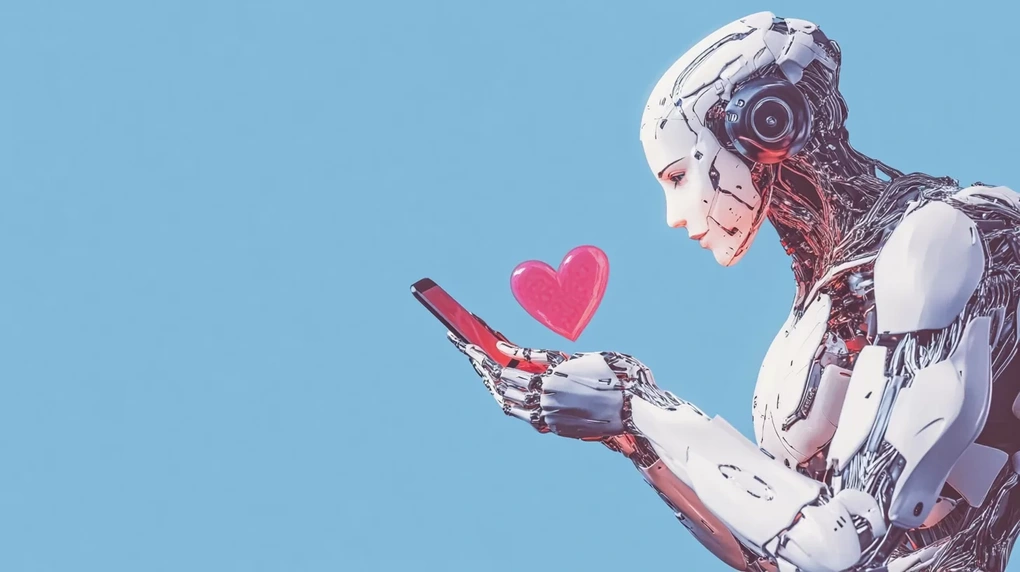
The dating industry is moving rapidly into a new era where AI plays a central role in connecting lonely hearts (Photo: AI Connect Network).
The "mood drop" of a billion dollar empire
The change couldn’t have come at a better time. After years of explosive growth, dating apps are stuck in what’s known as a “cycle of despair.” Users download the apps, quickly become exhausted from swiping, get dumped, and then delete them only to download them again a few months later.
More importantly, the “freemium” business model is losing its sanctity. User satisfaction is plummeting, and fewer and fewer people are willing to pay.
The financial numbers speak for themselves. Bumble lost 9% of its paid users over the past year, while Match Group (the parent company of Tinder and Hinge) lost 5%. That’s a big blow, because while paid users make up only about 20% of the total user base, they generate 97% of its revenue.
As a result, Match Group’s stock price has evaporated 80% from its 2021 peak, and Bumble’s has been even worse, down 90% since its IPO that same year. The dating industry needs a boost, and AI is the answer executives are betting on.
“AI already plays a big role in our operations, but I think it will be a turning point – a new technological transformation,” said Hesam Hosseini, COO of Match Group.
The AI Race: From "Coach" to "Virtual Copy"
Faced with financial pressure and user fatigue, the big guys are rushing to abandon the quantity “swiping” model in favor of AI-mediated quality “matchmaking”. The race to reshape the business model has begun.
Tinder is testing a service called AI Chemistry, which analyzes photo libraries to understand users' personalities. Hinge, which is known for its more serious nature, has used generative AI to improve its algorithm, resulting in a 15% increase in matches. Hinge is also using AI as a "coach" to help users write more interesting profiles.
Bumble announced it would launch its own AI matchmaking app later this year, with a new business model: It could charge for each successful match, rather than a monthly subscription fee.
Gay men's dating app Grindr has introduced six AI features (called gAI), including an AI "right-hand man" that advises on how to strike up a conversation and summarize profiles. CEO George Arison said the features will be bundled into a premium subscription plan, directly driving revenue.
This strategic change is also guaranteed by a top-level shake-up.
Match Group appointed Zillow co-founder Spencer Rascoff as CEO, who quickly restructured the company. Meanwhile, founder Whitney Wolfe Herd returned to the CEO position of Bumble in March, declaring: “This is not a fad. We are going to accelerate and go really hard into AI dating.”
New business models and investor perspectives
Companies' AI shift strategies are more than just a technological solution, they address the market's biggest pain point: burnout.
A new study by Match and the Kinsey Institute found that nearly half (47%) of singles feel “burned out” by dating, and 54% say the apps leave them emotionally drained.
In this context, AI is being hailed as an effective “virtual assistant”. Research shows that a quarter (26%) of singles are using AI to improve their dating lives, up 333% from 2024. For Gen Z, that number is closer to 50%. They use AI to write profiles, create introductions, and even check compatibility.
“AI doesn’t replace human intimacy. It just gives singles an advantage,” said psychologist Amanda Gesselman, an expert at the Kinsey Institute and Match. “For a generation overwhelmed by too many choices, tools that bring clarity and efficiency are always welcome.”
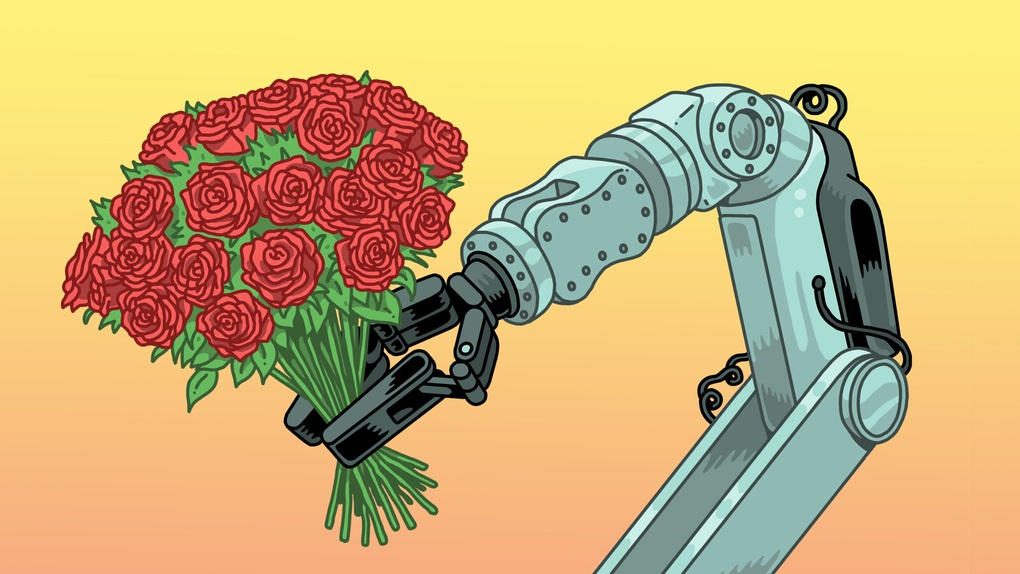
Many consumer investment funds are looking for startups that address the problem of loneliness in modern society, especially applying AI to do so (Photo: NYT).
While current applications use AI to "patch" business models, venture capitalists (VCs) see a completely different future, far beyond the concept of "dating".
Amber Atherton, a partner at venture capital fund Patron, believes the next generation will no longer be a dating app, but a "Relationship OS."
According to her, autonomous AI assistants will mine our networks and proactively suggest new connections. "It will operate as a continuous, ever-expanding support system that can suggest the right connections for friendship, love or work," Atherton explains.
Startups like Boardy (a "hyper-connected AI" for professionals) or Gigi (originally a dating app, now repositioned as a "socially connected AI") are leading this trend.
Investors are sniffing out a billion-dollar opportunity. Atherton’s Patron Fund, whose founders have worked at Riot Games and Discord, has raised $100 million by 2024 to invest in technologies that address loneliness. They believe a “Relationship OS” could become the next billion-dollar company.
In another development, the shake-up of the big players also creates acquisition opportunities. According to sources, two private equity funds, Francisco Partners and Permira, have approached Bumble and Grindr to discuss acquisitions, with the ambition of building a portfolio that can compete with the giant Match Group.
The Future of Love: AI Matchmaking, Human Connection
The AI revolution in the dating industry is clearly a strategic business move, aimed at solving a dual problem: user frustration and business revenue decline.
So what about Emma Inge, who paid $25 to an AI "matchmaker"?
The blind date at the bar went surprisingly well. They talked for two hours, sharing a lot in common. The guy worked for a robot taxi company—“exactly the type of person who would sign up for an AI matchmaking service,” Inge says.
They exchanged phone numbers for a second date. But the second date never came. “He disappeared,” Inge laughed.
AI does a great job of finding a match in the data. But as Inge concludes: “It’s just the human part that can’t keep up.” That’s perhaps the biggest risk that no business model or algorithm can fully account for.
The dating industry's AI gamble may solve the problem of efficiency and choice overload, but it can't replace the complexity and beauty of genuine connections.
The future of dating is not a world run entirely by AI, but rather one where technology becomes a powerful matchmaker, giving people more opportunities to write their own love stories.
Source: https://dantri.com.vn/kinh-doanh/ai-thanh-ba-moi-quyen-luc-moi-cua-nganh-hen-ho-ty-usd-20251104093558540.htm


![[Photo] The road connecting Dong Nai with Ho Chi Minh City is still unfinished after 5 years of construction.](https://vphoto.vietnam.vn/thumb/1200x675/vietnam/resource/IMAGE/2025/11/04/1762241675985_ndo_br_dji-20251104104418-0635-d-resize-1295-jpg.webp)
![[Photo] Ho Chi Minh City Youth Take Action for a Cleaner Environment](https://vphoto.vietnam.vn/thumb/1200x675/vietnam/resource/IMAGE/2025/11/04/1762233574890_550816358-1108586934787014-6430522970717297480-n-1-jpg.webp)

![[Photo] Ca Mau "struggling" to cope with the highest tide of the year, forecast to exceed alert level 3](https://vphoto.vietnam.vn/thumb/1200x675/vietnam/resource/IMAGE/2025/11/04/1762235371445_ndo_br_trieu-cuong-2-6486-jpg.webp)
![[Photo] Panorama of the Patriotic Emulation Congress of Nhan Dan Newspaper for the period 2025-2030](https://vphoto.vietnam.vn/thumb/1200x675/vietnam/resource/IMAGE/2025/11/04/1762252775462_ndo_br_dhthiduayeuncbaond-6125-jpg.webp)

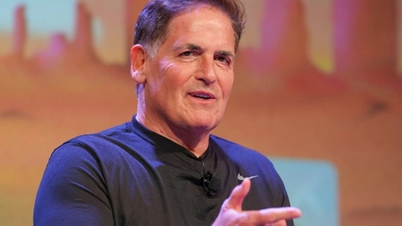
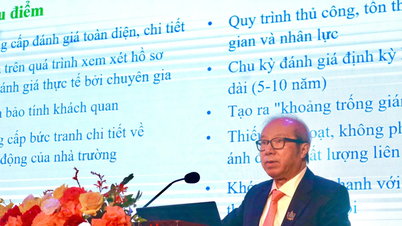



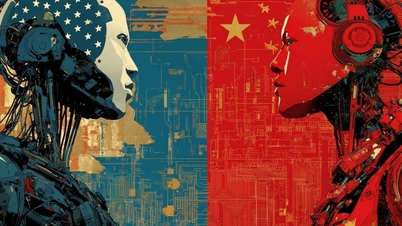
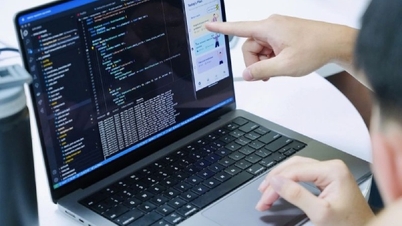

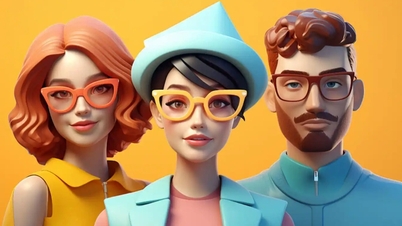
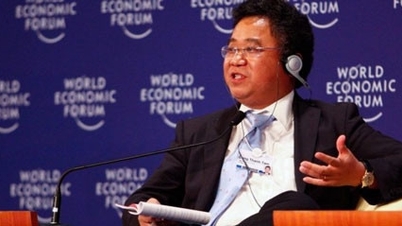












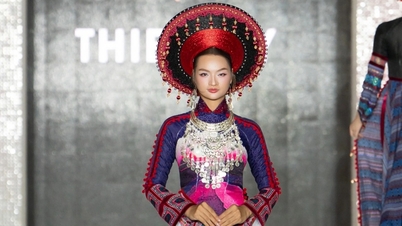

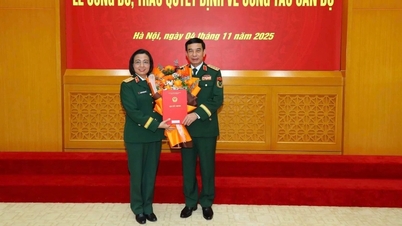
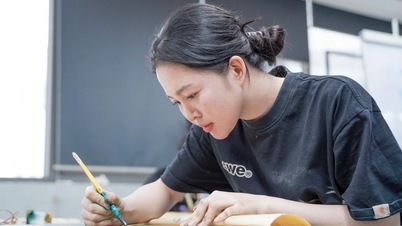

















































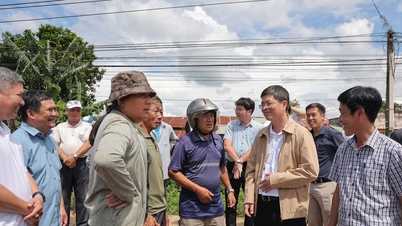




















Comment (0)